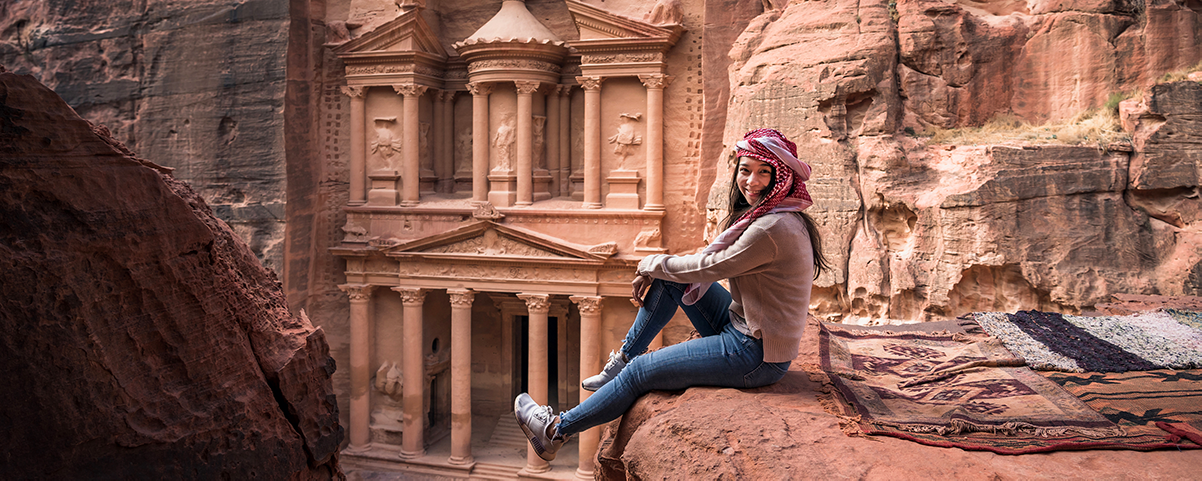
WHY STUDY ARABIC IN JORDAN?
Your Experiment starts in Amman, the capital of Jordan, a modern city with ancient roots. This fascinating city of contrasts—a unique blend of traditional and contemporary—is where you will begin your 45 hours of formal Arabic classes and experience Jordanian history, culture, and day-to-day life.
Then deepen your immersion by becoming part of a local community for four weeks during homestay activities and service projects and take advantage of around-the-clock opportunities to practice Arabic beyond the classroom. Your language training may exceed 90 hours with practice through formal classes, host community and peer interactions, and more. Expand your knowledge of present-day Jordan through discussions on politics, Islam, democracy, human rights, the role of refugees, and multiculturalism. You will also learn about the ongoing debates surrounding Jordan’s environmental and natural resource challenges.
Outside the capital, explore Jordan’s ancient history in Gerasa (Jerash) and Gadara (Um Qais), two cities of the Decapolis, a Greco-Roman federation of cities east of the Mediterranean. Visit Petra, one of the world’s new seven wonders, and trek the rocky mountains of Wadi Rum on camelback.
Explore the sample course syllabus to learn about teaching modules, learning outcomes, and program expectations.
Upon successful completion of this program, students will earn three college credits through The Experiment’s accredited partner institution, School for International Training.
LEARN BY DOING
The Experiment’s programs are designed to build skills that will help you succeed. In Jordan, you will learn:
TECHNICAL SKILLS
- Arabic language
- College prep
INTERPERSONAL SKILLS
- Time management
- Intercultural communication
- Problem-solving
- Adaptability
- Relationship-building
KNOW BEFORE YOU GO
- Be prepared to be intellectually challenged by the course content and your learning community. Participants will be expected to complete required readings, assignments, exercises, and actively participate in course discussions.
- Certain program activities will require a specific dress code based on site visits and cultural norms. More details will be available in the packing list.
- Bring clothing that is modest and culturally appropriate yet will keep you cool.
- Time allocated for optional activities means freedom and flexibility, which require a level of independence.
- Some cities are becoming more vegetarian/vegan friendly. Vegetarians and vegans will find that Levantine food is rich in vegetable-only dishes (such as fuul, hummus, tabbouleh, and falafel). Kosher meats are not available in Jordan, though other foods that fit into Jewish dietary requirements are easily found.
- Access to the internet is limited and internet speeds and connectivity vary.
- Jordan is a conservative country regarding LGBTQ+ issues. We encourage students to approach the program staff for support on gender and sexuality questions and concerns.
- The diverse personal and social identities of participants may, in part, shape their experience abroad. In-country partners will discuss cultural norms and the local context during orientation. Please read our approach to Diversity, Equity, and Inclusion for further information. All students will have a safe space within the program spaces and with the local staff and group leaders.
- The Experiment program structure is rooted in experiential learning and cohort-based learning. The participant group experience is a major source of learning for Experimenters and is facilitated by trained Experiment group leaders.


